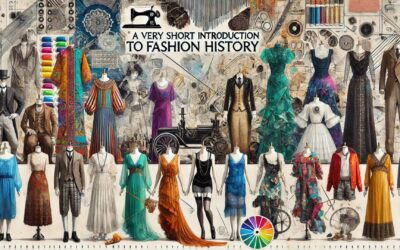Practice
Flashcards
Learn
Match
Spell
Test
Practice Worksheet
PDF Download Link
Transcript
ANCIENT EGYPT
Pyramids and pharaohs, mummies and magic, picture writing on papyrus—ancient Egypt had all this, and much more. Rich, powerful, and peace-loving, this North African kingdom was home to a splendid civilization that lasted 3,000 years, from about 3300 B.C. to 30 B.C.
RED LAND, BLACK LAND
Ancient Egypt was a vast territory, stretching 700 miles (1,100 kilometers) southward from the Mediterranean Sea. Most of it was hot, dry, and dusty. The Egyptians called it Deshret (red land). But the world’s longest river, the Nile, runs through this desert. Every year, the river flooded the surrounding land. The floods left sticky, smelly mud covering the land along the riverbanks. Egyptians called the riverside area Kemet (black land). This land was very fertile. About 5000 B.C., the ancient Egyptians built some of the world’s first farms and villages there.
THE GIFT OF THE NILE
Egypt was sometimes called “the gift of the Nile.” All Egyptian life depended on the river. Farmers dug ditches to bring its water to fields of wheat, grapes, and onions. Rich nobles, town traders, and poor country families all built homes made of sun-dried river mud. Craftspeople shaped clay from the Nile into pottery, and wove cloth from the flax plant that grew on its banks. Families caught fish and river birds for food. Children played in riverside pools, but they had to watch out for killer crocodiles!
LIFE IN ANCIENT EGYPT
Most ancient Egyptian homes had just two or three rooms, with workspace on the roof. Rich people built larger houses, with painted walls, fine furniture, gardens, and pools. In poor families, women wore rough homemade dresses and men wore cloths tied around the hips. But the rich could afford curled wigs, makeup, colored clothes, and jewels. They had servants and slaves to work for them.
Rich or poor, all Egyptians valued family life. They married young and had many children. Families worked together and played together. Egyptian people liked games, stories, music, dancing, and holiday feasts and parades.
The ancient Egyptians believed in magic and many gods. People built little shrines to their favorite gods. They wore amulets (charms), and recited prayers and spells. They also built statues representing gods. The most famous is the Great Sphinx of Giza. This huge statue with the body of a lion and the head of a man still stands today.
HIEROGLYPHS AND PAPYRUS
The ancient Egyptians had a complex system of writing known as hieroglyphics. This form of writing looks like columns of little pictures. These picture-symbols are called hieroglyphs. Not everyone could read hieroglyphs. Reading and writing was the job of special scholars called scribes.
Scribes wrote in hieroglyphs on papyrus, a kind of paper made from reeds. This was some of the world’s first writing! Pages of poems, songs, stories, math, science, and astronomy have all been preserved.
POWERFUL PHARAOHS
Egyptian kings were known as pharaohs. Egyptians said the pharaohs were the children of a god. They were links between heaven and Earth. Pharaohs were the chief priests, lawmakers, and army commanders of the kingdom. They gave orders to governors, judges, tax collectors, and soldiers. They made treaties with foreign rulers and controlled trade with other countries. All Egyptians had to pay taxes to them or work on their building projects.
PYRAMID TOMBS AND MUMMIES
Some of the pharaohs had great pyramids constructed. A pyramid was an enormous stone tomb. Building a pyramid was a tremendous project. Thousands of people worked for many years to construct one. Some of the stone blocks that make up the pyramids weigh more than two elephants!
The ancient Egyptians believed that their bodies must survive for life after death. They had their bodies made into mummies. Mummies were preserved, dried, and wrapped in cloth. Egyptians hoped this would help their spirits survive after they died. Pharaoh mummies were placed in pyramids or great tombs surrounded by treasures to be used in the afterlife. Guides to the world of the dead written in hieroglyphs on papyrus have been found with mummies. Most royal mummies, and the treasures buried with them, were stolen by grave robbers long ago.
LASTING REMINDERS OF THE PAST
Egypt’s rich civilization attracted many invaders. But it survived for thousands of years. In 30 B.C., Egypt’s last pharaoh—Queen Cleopatra—killed herself rather than surrender to Roman conquerors. That was 2,000 years ago. But ancient Egypt has not been forgotten. Some mummies were so well preserved that they are still around. Some of them are in museums. And many of ancient Egypt’s greatest monuments, including many pyramids, are still standing. You can visit them!
flood
If there is a flood, a large amount of water covers an area which is usually dry, for example when a river flows over its banks or a pipe bursts.
If something such as a river or a burst pipe floods an area that is usually dry or if the area floods, it becomes covered with water.
If a river floods, it overflows, especially after very heavy rain.
fertile
Land or soil that is fertile is able to support the growth of a large number of strong healthy plants.
A fertile mind or imagination is able to produce a lot of good, original ideas.
A situation or environment that is fertile in relation to a particular activity or feeling encourages the activity or feeling.
ditch
A ditch is a long narrow channel cut into the ground at the side of a road or field.
If you ditch something that you have or are responsible for, you abandon it or get rid of it, because you no longer want it.
If someone ditches someone, they end a relationship with that person.
value
If you value something or someone, you think that they are important and you appreciate them.
The value of something such as a quality, attitude, or method is its importance or usefulness. If you place a particular value on something, that is the importance or usefulness you think it has.
The value of something is how much money it is worth.
feast
A feast is a large and special meal.
If you feast on a particular food, you eat a large amount of it with great enjoyment.
A feast is a day or time of the year when a special religious celebration takes place.
parade
A parade is a procession of people or vehicles moving through a public place in order to celebrate an important day or event.
When people parade somewhere, they walk together in a formal group or a line, usually with other people watching them.
If prisoners are paraded through the streets of a town or on television, they are shown to the public, usually in order to make the people who are holding them seem more powerful or important.
shrine
A shrine is a place of worship which is associated with a particular holy person or object.
A shrine is a place that people visit and treat with respect because it is connected with a dead person or with dead people that they want to remember.
a place of worship hallowed by association with a sacred person or object
scholar
A scholar is a person who studies an academic subject and knows a lot about it.
A scholar is a student who has obtained a scholarship.
a learned person, esp in the humanities
scribe
In the days before printing was common, a scribe was a person who wrote copies of things such as letters or documents.
a person who copies documents, esp a person who made handwritten copies before the invention of printing
a man qualified to write certain documents in accordance with religious requirements
invader
invaders are soldiers who are invading a country.
You can refer to a country or army that has invaded or is about to invade another country as an invader.
conqueror
The conquerors of a country or group of people are the people who have taken complete control of that country or group’s land.
The conqueror of a person or team is the person or team that beats them in a game or contest.
a person who conquers or vanquishes; victor











0 Comments